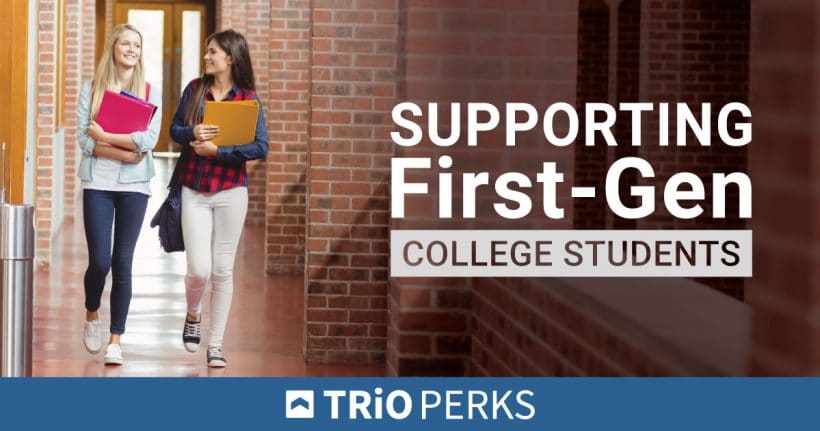
Each fall, thousands of first-year students arrive on college campuses, feeling a mixture of excitement and apprehension for the beginning of their college career. For some, college is an entirely new experience within their family structure. These individuals often don’t know what to expect from the college experience, typically because their parents never completed an undergraduate degree. Most universities identify these students as First-Generation college students. Beginning with the first year, supporting first-generation college students is crucial to their success over the long term. Up to a third of first-generation college students drop out by their junior year and never attain a degree.
Adjusting to College Life
Without practical experience from their family members, first-generation college students may struggle to adapt to all aspects of college. Dorm life, academics, socializing, money management, and health can all become areas of struggle for the first-gen college freshman. Many universities offer programs geared toward assisting these students, but these offerings can get lost amid adjusting to this new experience.
Outreach to all freshmen on campus can and should include promoting campus resources such as Student Support Services. As the semester gets underway, identifying first-gen students and putting them in touch with resources can help them to adjust to college life.
Supporting First-Gen College Students
First-gen college students bring a different perspective to campus. Very few experiences in their lives have equipped them for the challenges that college life can bring. They may feel overwhelmed, intimidated, and ill-prepared for the college experience, especially if they are surrounded by other students whose families have college degrees. Some may feel like imposters. You can help assure them by:
Acknowledging Their Experience
While most first-gen students are aware they are the first in their families to attend college, many may not realize there is a name for this identity. Address the specific challenges they face by providing services such as tutoring, accommodations, and skill development workshops. Help them get up to speed on what they need to know to be successful.
Extending Orientation Past the First Week
Freshman orientation is a universal experience for all first-year students. For first-gen students, however, extending orientation past the first week can help them better adjust to campus life. This extension can be a great opportunity to introduce first-gen students to the additional supports available to them. This is where Student Support Services (SSS) can begin to develop relationships with these individuals.
Introducing Them to Mentors
A mentoring program can provide a personal, one-on-one connection with someone who can guide them throughout their college career. A mentor can help the student to close the knowledge gap that often becomes quite obvious during the first year on campus. They can also guide the student in developing an academic path that meets their career goals. Many mentoring programs tap the abilities of both university staff and first-gen upperclassmen as peer mentors.
Helping Them Network
Networking isn’t just for the business world. It often begins in the college years. Professors, university staff, other students, and professional contacts made during undergrad can extend into the world beyond campus life after graduation. Encourage students to participate in social clubs and extracurricular activities and build these connections for the future.
Connecting First-Year First-Gen Students to SSS
Freshman year is a critical period of adjustment for all students, perhaps more so for first-gen students. Supporting these first-gen students during the first year of college can be challenging due to the wide variety of needs they may have. Keeping them connected to Student Support Services is crucial.
Trio Perks software enables SSS to encourage and reward students for engaging with your program. Establish actions you want them to take and reward them with incentives. You can track participation in program activities, award points, and allow them to use points for incentives, all within the software. We’d love to show you more! Contact us for more information!
